Filter by

Somalis in the Twin Cities and Columbus: Immigrant Incorporation in New Desti…
Somalis in the Twin Cities and Columbus seeks to understand the integration outcomes of refugees in the Midwest at local and state levels to show how communities struggle with political, social, and economic incorporation. While many immigration titles examine the Latino community, this book focuses on the black Muslim Somalis, providing an important understanding of the lives of this understud…
- Edition
- -
- ISBN/ISSN
- 9781439914410
- Collation
- -
- Series Title
- -
- Call Number
- 303.48 CHA s
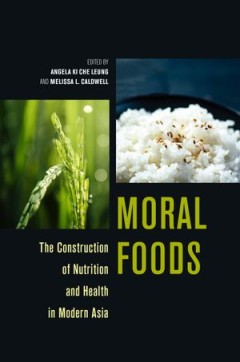
Moral Foods: The Construction of Nutrition and Health in Modern Asia
Moral Foods: The Construction of Nutrition and Health in Modern Asia investigates how foods came to be established as moral entities, how moral food regimes reveal emerging systems of knowledge and enforcement, and how these developments have contributed to new Asian nutritional knowledge regimes. The collection’s focus on cross-cultural and transhistorical comparisons across Asia brings into…
- Edition
- -
- ISBN/ISSN
- 9780824876708
- Collation
- -
- Series Title
- -
- Call Number
- 641.1 MOR m
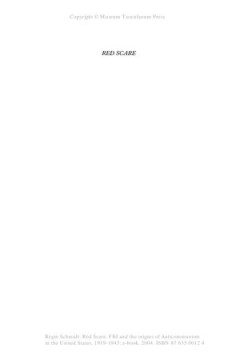
Red Scare Fbi and The origins of Anticommunism in The United States
The anticommunist crusade of the Federal Bureau of Investigation and its legendary director J. Edgar Hoover during the McCarthy era and the Cold War has attracted much attention from historians during the last decades, but little has been known about the Bureau's political activities during its formative years. This work breaks new ground by tracing the roots of the FBI's political surveillance…
- Edition
- -
- ISBN/ISSN
- 9788763500128
- Collation
- -
- Series Title
- -
- Call Number
- -

The European Productivity Agency and Transatlantic Relations 1953-1961 (Vol. 4)
A study of European co-operation and transatlantic relations in the 1950s as well as on the changes these relations underwent during the early postwar period. The European Productivity Agency (EPA) was created in 1953 as a semi-autonomous organization within the framework of the Organisation for European Economic Co-operation (OEEC) and wound up eight years later, in 1961, when the United State…
- Edition
- -
- ISBN/ISSN
- 9788763502122
- Collation
- -
- Series Title
- -
- Call Number
- -
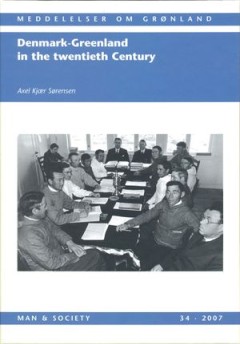
Denmark-Greenland in the twentieth century (Vol. 341)
This book traces Danish-Greenlandic relations over 100 years and is the first publication to cover the period 1900-2000. The main trend is the development from a colonial situation in 1900 with a state owned company runnig nearly all business to an open economy with steadily growing selfgovernment for Greenland short of full independence. The Danish policy can be described as benevolent, but fi…
- Edition
- -
- ISBN/ISSN
- 9788763530705
- Collation
- -
- Series Title
- -
- Call Number
- -

Technicians of Human Dignity: Bodies, Souls, and the Making of Intrinsic Worth
Technicians of Human Dignity traces the extraordinary rise of human dignity as a defining concern of religious, political, and bioethical institutions over the last half century and offers original insight into how human dignity has become threatened by its own success. The global expansion of dignitarian politics has left dignity without a stable set of meanings or referents, unsettling contem…
- Edition
- -
- ISBN/ISSN
- 9780823267774
- Collation
- -
- Series Title
- -
- Call Number
- 361.61 BEN t

Insurgent Testimonies: Witnessing Colonial Trauma in Modern and Anglophone Li…
During the second half of the nineteenth century and the first half of the twentieth, insurgencies erupted in imperial states and colonies around the world, including Britain's. As Nicole Rizzuto shows, the writings of Ukrainian-born Joseph Conrad, Anglo-Irish Rebecca West, Jamaicans H. G. de Lisser and V. S. Reid, and Kenyan Ng gi wa Thiong, testify to contested events in colonial modernity in…
- Edition
- -
- ISBN/ISSN
- 9780823267811
- Collation
- -
- Series Title
- -
- Call Number
- 361.61 RIZ i

Violent Exceptions: Children’s Human Rights and Humanitarian Rhetorics
Violent Exceptions turns to the humanitarian figure of the child-in-peril in twenty-first-century political discourse to better understand how this figure is appropriated by political constituencies for purposes rarely to do with the needs of children at risk. Wendy S. Hesford shows how the figure of the child-in-peril is predicated on racial division, which, she argues, is central to both cons…
- Edition
- -
- ISBN/ISSN
- 9780814281178
- Collation
- -
- Series Title
- -
- Call Number
- 341.4 HES v
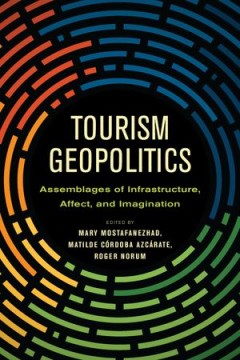
Tourism Geopolitics: Assemblages of Infrastructure, Affect, and Imagination
By the start of the century, nearly one billion international travelers were circulating the globe annually, placing tourism among the worlds’ most ubiquitous geopolitical encounters. While the COVID-19 pandemic brought the industry to a sudden halt, its geopolitical significance remained. With striking clarity, tourism desires and reinvented mobilities revealed the impermanence of Old World …
- Edition
- -
- ISBN/ISSN
- 9780816539307
- Collation
- -
- Series Title
- -
- Call Number
- 338.4791 TOU t
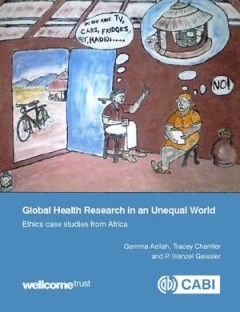
Global Health Research in an Unequal World
This book is a collection of fictionalised case studies of everyday ethical dilemmas and challenges, encountered in the process of conducting global health research in places where the effects of global, political and economic inequality are particularly evident. It is a training tool to fill the gap between research ethics guidelines, and their implementation 'on the ground'. The case studies,…
- Edition
- -
- ISBN/ISSN
- 9781786390042
- Collation
- -
- Series Title
- -
- Call Number
- -
 Computer Science, Information & General Works
Computer Science, Information & General Works  Philosophy & Psychology
Philosophy & Psychology  Religion
Religion  Social Sciences
Social Sciences  Language
Language  Pure Science
Pure Science  Applied Sciences
Applied Sciences  Art & Recreation
Art & Recreation  Literature
Literature  History & Geography
History & Geography